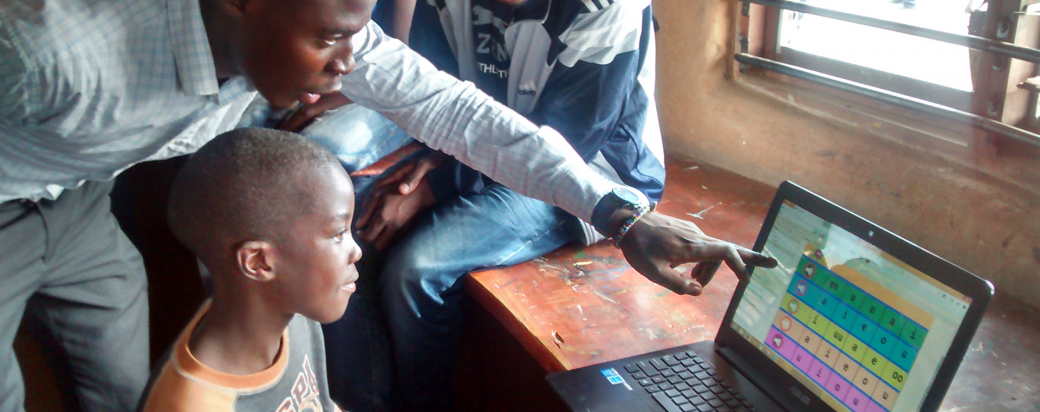
This initiative is part of the 2014-15 WISE Accelerator Cohort.
What they do
Ustad Mobile enables educators to author their own learning materials including audio, video, quizzes, and games, and make them accessible on almost any mobile device. Producing learning content and student access can be done offline. Statistics can be sent when a connection is available, providing educators with rapid access to rich reports even from remote areas with infrastructure challenges.
The platform is designed to work offline, allowing content authors in locations with low-speed Internet access to create rich content – including large multimedia files – without worrying about bandwidth. It is point-and-click and does not require computer-programming skills that can be difficult and expensive to find.
The platform is in use by multiple organizations in Afghanistan, Kenya, Zambia, Iraq and Germany, teaching literacy, workforce skills, languages, and even basic computer usage.
Why it matters
Content authors in developing countries often lack the technology to produce and enrich their own culturally and contextually appropriate curricula. The platform is based on simple-to-use authoring tools that do not require advanced technical skills and the ability to use the low-end low-cost devices that students in developing countries already own.
There are expensive proprietary tools common in the eLearning industry such as Adobe Captivate and Articulate Storyline. The license for such tools is typically around $2,000 (US) and they allow learning activities to take place on low-end devices and often require Internet access to work properly. Various open-source and proprietary approaches require reliable high-speed Internet access that makes their use impractical in developing countries.
Tractions so far
Instead of prescribing pedagogy, methods, and content in mass to educators in developing countries, Ustad Mobile empowers those who understand their students and context to create their own solutions. Developing countries often have high teacher-to-student ratios that result in insufficient instructor time and feedback for students (e.g. in Afghanistan where the school day averages just 2.5 hours).
The toolkit makes it possible to use a blended-learning approach, enabling educators to employ learning through mobile devices to supplement face-to-face classroom time. Policewomen in Afghanistan progressed through a literacy course faster than guidelines expected using Ustad Mobile to achieve literacy, with only one class per week instead of three to five.
In post-conflict areas in particular, corruption in education leads to situations where over 20 percent of schools may operate only on paper, because corrupt local officials pocket expenses such as teacher salaries. Ustad Mobile makes it easier for governments, donors and organizations to conduct verifiable learning assessment and track learner effort as it happens.
Ustad Mobile has recently conducted field research in Afghanistan to evaluate the different educational stakeholders’ needs in the country. The outcomes of this research revealed that the actors’ primary concern is education monitoring rather than education delivery via alternative channels, which may reorient the project’s scaling strategies. This was also an opportunity for the project representative to meet with potential partners, such as Canadian Women for Women in Afghanistan and Save the Children. In addition, Ustad Mobile is currently working on a native app release for Android to improve the user experience.
In 2015, Ustad Mobile was the prize-winning finalist in the Enabling Writers competition, sponsored by All Children Reading: A Grand Challenge for Development (ACR GCD).